Date: June 26, 2025 Update: July 05, 2025
According to the Hague Summit Declaration, NATO leaders committed to allocating 5% of their annual Gross Domestic Product (GDP) to defence and security expenditures by 2035. This step was taken to ensure that NATO members fulfill their individual and collective obligations. The five-point Declaration also reaffirmed the “unwavering commitment” of the 32 members to collective defence, specifically the principle enshrined in Article 5 of the Washington Treaty, which states that “an attack on one member is considered an attack on all.”
NATO 2025 The Hague Summit Declaration:
1. We, the Heads of State and Government of the North Atlantic Alliance, have gathered in The Hague to reaffirm our commitment to NATO, the strongest Alliance in history, and to the transatlantic bond. We reaffirm our ironclad commitment to collective defence as enshrined in Article 5 of the Washington Treaty – that an attack on one is an attack on all. We remain united and steadfast in our resolve to protect our one billion citizens, defend the Alliance, and safeguard our freedom and democracy.
2. United in the face of profound security threats and challenges, in particular the long- term threat posed by Russia to Euro-Atlantic security and the persistent threat of terrorism, Allies commit to invest 5% of GDP annually on core defence requirements as well as defence-and security-related spending by 2035 to ensure our individual and collective obligations, in accordance with Article 3 of the Washington Treaty. Our investments will ensure we have the forces, capabilities, resources, infrastructure, warfighting readiness, and resilience needed to deter and defend in line with our three core tasks of deterrence and defence, crisis prevention and management, and cooperative security.
3. Allies agree that this 5% commitment will comprise two essential categories of defence investment. Allies will allocate at least 3.5% of GDP annually based on the agreed definition of NATO defence expenditure by 2035 to resource core defence requirements, and to meet the NATO Capability Targets. Allies agree to submit annual plans showing a credible, incremental path to reach this goal. And Allies will account for up to 1.5% of GDP annually to inter alia protect our critical infrastructure, defend our networks, ensure our civil preparedness and resilience, unleash innovation, and strengthen our defence industrial base. The trajectory and balance of spending under this plan will be reviewed in 2029, in light of the strategic environment and updated Capability Targets. Allies reaffirm their enduring sovereign commitments to provide support to Ukraine, whose security contributes to ours, and, to this end, will include direct contributions towards Ukraine’s defence and its defence industry when calculating Allies’ defence spending.
4. We reaffirm our shared commitment to rapidly expand transatlantic defence industrial cooperation and to harness emerging technology and the spirit of innovation to advance our collective security. We will work to eliminate defence trade barriers among Allies and will leverage our partnerships to promote defence industrial cooperation.
5. We express our appreciation for the generous hospitality extended to us by the Kingdom of the Netherlands. We look forward to our next meeting in Türkiye in 2026 followed by a meeting in Albania.
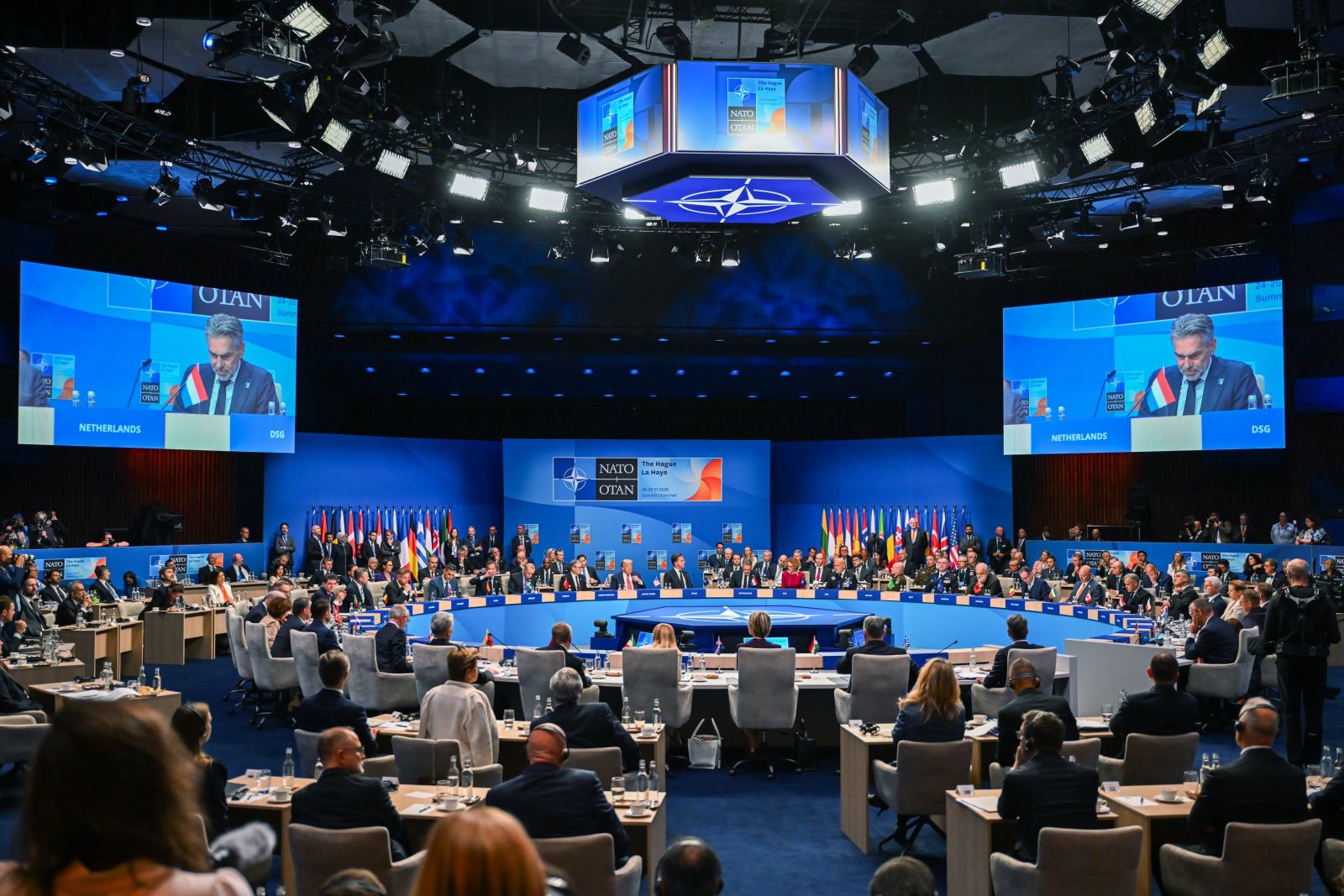
Upon examining the items in the 2025 NATO Hague Summit Declaration, it can be said that President Donald TRUMP emerged from the Summit with a significant diplomatic victory, as NATO Member State and Government Leaders agreed to increase defence spending from the current 2% level to 5% of their Gross Domestic Product (GDP) by 2035, as TRUMP has long demanded. In a press conference, President TRUMP interpreted this achievement as a sign that Europe has transformed from a “stolen” alliance into a “defended” one. On the matter, TRUMP stated, “I came here because it was something I'm supposed to be doing, but I left here a little bit differently. I watched the heads of these countries get up and the love and the passion that they showed for their country was unbelievable. I've never seen quite anything like it. They want to protect their country and they need the United States and without the United States, it's not going to be the same.” Previously, TRUMP had described NATO as an “unpaid system” because most European countries allocated less than 2% of their GDP to defence spending. Despite the 2% target set in 2014, eight countries have still not met it after 11 years. In 2024, Türkiye allocated 2.13% of its GDP to defence spending.
The Summit also concluded in a manner that met Türkiye's expectations, with several critical issues that Türkiye has emphasized included in the 2025 NATO Hague Summit Declaration. For instance, the Declaration announced that the 2026 NATO Summit will be held in Türkiye. Türkiye’s long-standing request to host a NATO Summit received a positive response during the NATO Washington Summit in July 2024, and the 2024 Washington Summit Declaration stated, without specifying a date, “We look forward to meeting again at our next Summit in The Hague, Netherlands, in June 2025, and thereafter holding a meeting in Türkiye.” Thus, at the 2025 NATO Hague Summit, the date for the NATO Summit to be held in Türkiye was confirmed as 2026. In a press conference, President Recep Tayyip ERDOĞAN stated that they would decide which city will host the Summit at a meeting to be held the following week.
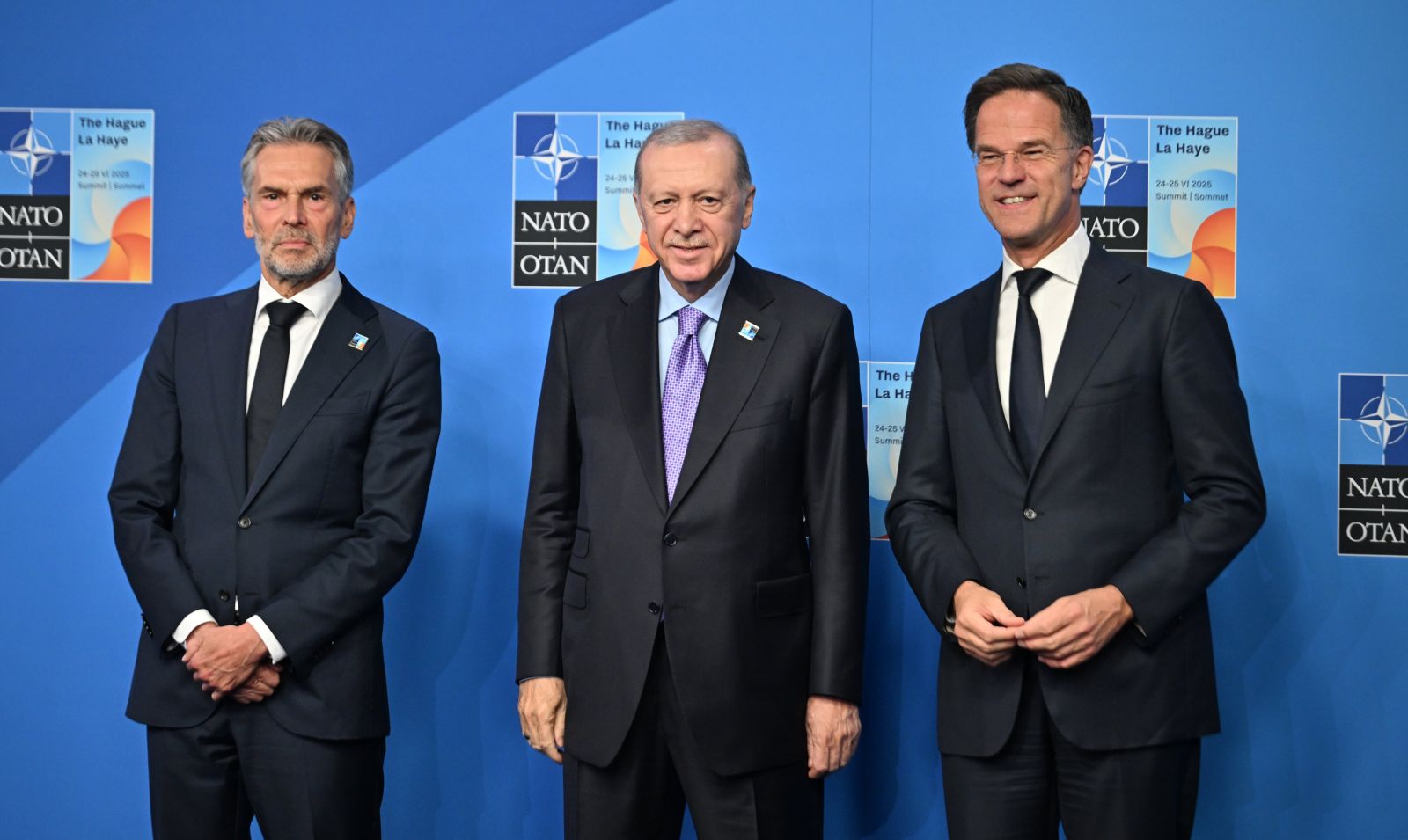
Another issue of importance to Türkiye, which was identified as a priority before the meeting, included in the 2025 NATO Hague Summit Declaration was the recognition of terrorism as an official threat by the Alliance and the integration of counter-terrorism into NATO’s acquis. Despite the brevity of the 2025 NATO Hague Summit Declaration text, it includes a reference to the terrorism threat. In a press conference, President ERDOĞAN stated on the matter, “In The Hague, I emphasized that the fight against terrorism can only succeed with the sincere solidarity of allies. We ensured that this threat was reflected in the Summit Declaration.”
In my opinion, the greatest achievement for Türkiye, and thus for President ERDOĞAN, at the Hague Summit was the inclusion in the 2025 NATO Hague Summit Declaration of a commitment to promote defence industry cooperation among members and to work towards removing barriers to defence trade among Allies. Both ERDOĞAN, Defence Minister Yaşar GÜLER, and Foreign Minister Hakan FİDAN had repeatedly raised this issue in NATO meetings, emphasizing to their counterparts that the situation was unacceptable. In recent years, Türkiye has faced arms embargoes from some NATO member countries for various reasons, and intensive negotiations have been ongoing for the past few years to resolve issues, particularly with the United States and Germany. The fourth article of the 2025 NATO Hague Summit Declaration is also seen as a positive step towards ensuring Türkiye’s full participation in the European Union’s defence initiatives as a non-EU Ally and securing a share in the European defence spending, expected to reach a volume of 800 billion Euros. Commenting on this issue, ERDOĞAN stated, “I emphasized that the full inclusion of non-member Allies in the Union’s (EU) defence industry initiatives would be in the interest of all of Europe.” He continued, “We led the effort to ensure that the commitment to removing barriers to the trade of defence industry products among Allies is reflected in Alliance documents.”
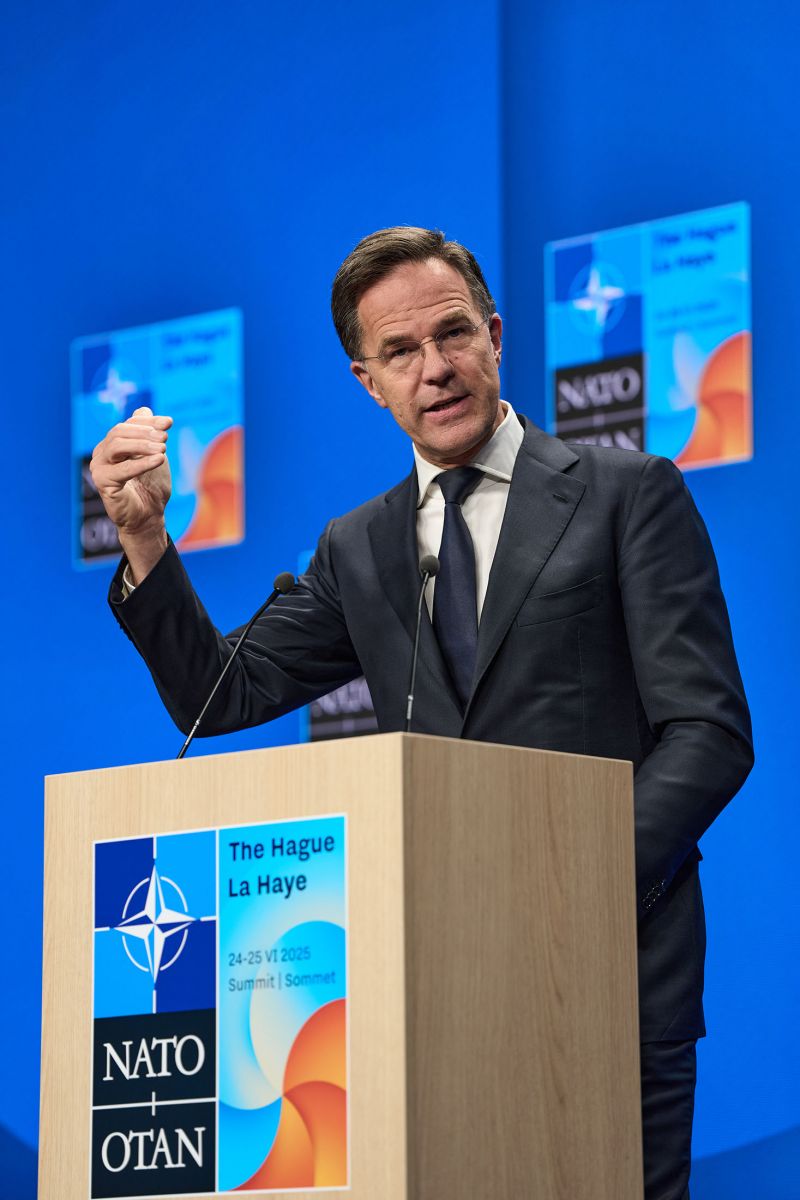
NATO Secretary General RUTTE’s Closing Press Conference at the 2025 NATO Hague Summit
In his speech at the 2025 NATO Hague Summit Closing Press Conference, NATO Secretary General Mark RUTTE highlighted that the Allies had laid the foundations to make NATO stronger, fairer, and more deterrent. RUTTE announced that the NATO Heads of State and Government attending the Summit agreed on the Hague Defence Investment Plan, which would “create a leap forward in NATO’s collective defence.” He stated, “We agreed to boost our defence industries – which will not only increase our security but will also create jobs. And we have reaffirmed our unwavering support for Ukraine. All of this is crucial.” Emphasizing that NATO is ready to defend every inch of Allied territory against any challenge—whether from Russia, terrorism, cyberattacks, sabotage, or strategic competition—RUTTE noted that the decisions taken at the Summit would strengthen NATO’s deterrence and defence role.
Providing details on the Hague Defence Investment Plan, which he described as “a serious commitment against serious threats,” RUTTE explained that Allies agreed to invest 5% of their GDP in defence, with at least 3.5% allocated to core defence spending and the remaining 1.5% to investments supporting defence and security. He noted that all Allies would meet the current 2% target by the end of 2025. Continuing his speech, RUTTE said,
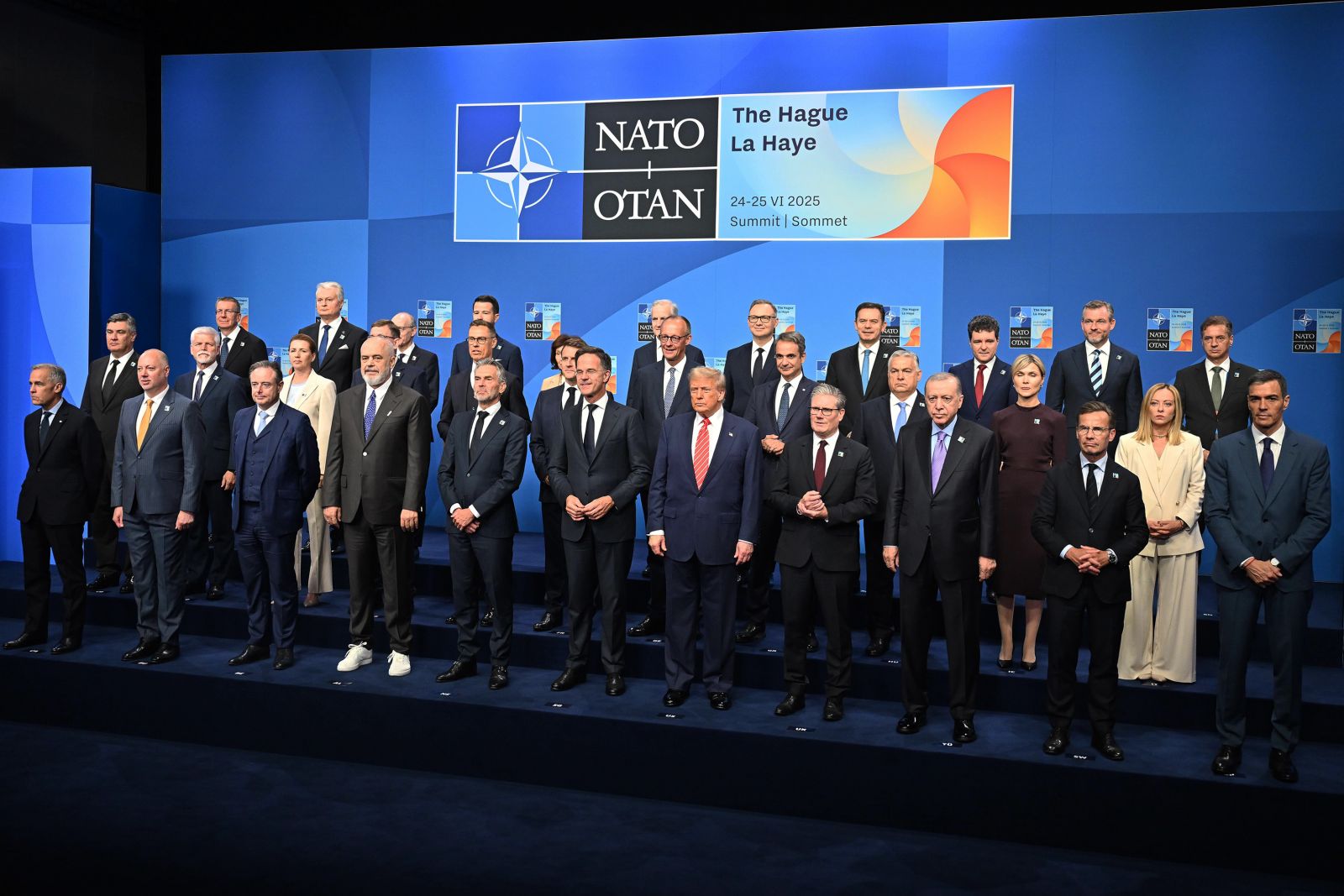
“Allies recognize the seriousness of the threats we face. Europe and Canada are now taking on more responsibility. U.S. President TRUMP reaffirmed America’s commitment to NATO while clearly stating that European Allies need to contribute more. The decisions we made today make NATO a stronger and fairer Alliance. We also sent a strong message of support to Ukraine today. President ZELENSKIY and his delegation are here with us in The Hague. Over 35 billion Euros in aid has been pledged to Ukraine for 2025 so far, with more on the way. Our goal is to ensure Ukraine can sustain its current fight and secure lasting peace in the future. We will continue to support Ukraine’s irreversible path to NATO membership. Today was a very important day. The Allies have set the course to carry our security into the future.”
During the Q&A session, in response to a journalist’s question about whether it was fair that U.S. President TRUMP did not intend to apply the 5% target to his own country, RUTTE replied, “The U.S. is already spending 3.5% on core defence, and when you include the 1.5% on defence-related expenditures, they are close to 5%. So, they are already near the target.” When another journalist asked if the Summit was held to satisfy TRUMP, RUTTE responded, “There was a long-standing U.S. demand, but there is also a real need in the face of threats from Russia and China. So, this isn’t just for TRUMP—it’s being done because it’s necessary.” On the question of how much military aid would be provided to Ukraine by the end of 2025, RUTTE said, “The aid in the first half of this year has already surpassed last year’s. I believe we will exceed the 50 billion Euros provided in 2024 by the end of the year. We are making investments to ensure Ukraine can stay in the fight and defend itself after peace is achieved.”
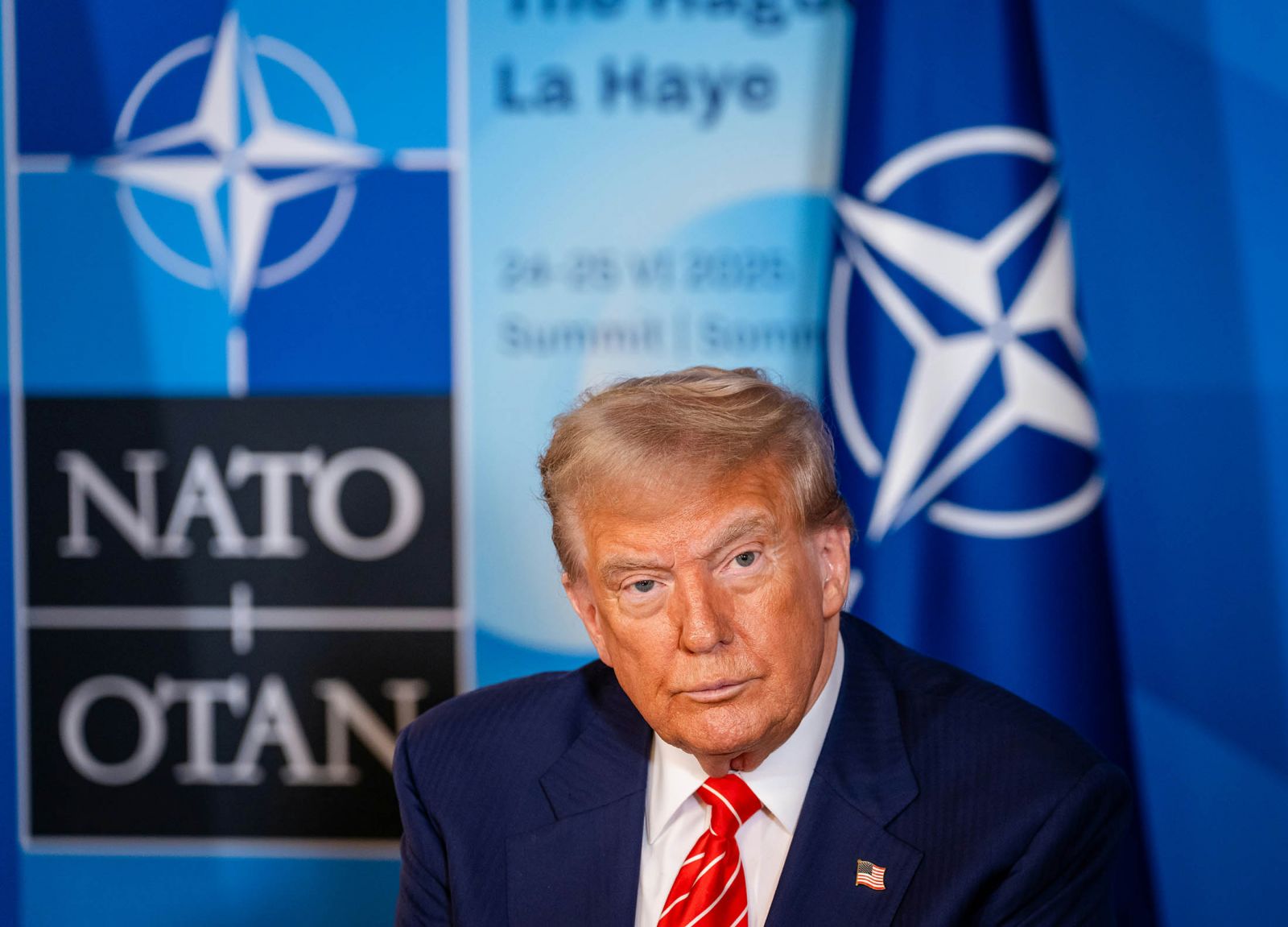
TRUMP Praises USAF Pilots, Threatens Spain at Press Conference
At the press conference following the 2025 NATO Hague Summit, U.S. President Donald TRUMP addressed both the decisions made at the Summit and the U.S. military operation targeting Iran’s nuclear facilities. Dedicating a significant portion of his speech to the “devastating” military operation conducted by the U.S. Air Force’s B-2 aircraft and Navy submarines, TRUMP described the surprise attack on Iran’s Fordo, Natanz, and Isfahan nuclear facilities on the evening of June 22 as “very, very successful.” He characterized the attack as “obliteration,” claiming that it rendered Iran’s nuclear capabilities “unusable forever.” Drawing a parallel to the atomic bombs dropped on Hiroshima and Nagasaki that ended World War II, TRUMP asserted, “It was so devastating that it ended the war… Look at Hiroshima, look at Nagasaki… This ended a war in a different way.” He emphasized that no other military in the world could have executed such an operation, stating, “The U.S.’s extraordinary display of power, combined with the ceasefire agreement reached on Monday, paved the way for peace. We believe it’s appropriate to call this war the ‘12-Day War,’ and we think this war is over. I don’t believe the parties will attack each other anymore.” Highlighting the pilots involved as the world’s best, TRUMP credited them with delivering “the strikes that brought peace,” noting that they conducted dangerous flights in “enemy” territory for 36 hours and achieved “legendary” results. However, he expressed disappointment over what he called “fake news” from CNN and the New York Times, which he claimed upset the pilots. TRUMP also mentioned that negotiations with Iran were planned for the following week, adding, “It would be good if we reach an agreement, but it’s not a must. We’ve already destroyed their nuclear program.”
In his speech, TRUMP also addressed the Hague Defence Investment Plan, which includes a commitment by NATO member countries to allocate 5% of their annual GDP to defence, including defence and security-related expenditures, by 2035. He noted that Spain was the only NATO country that did not accept the 5% target, warning, “If Spain doesn’t pay its defence spending, it will pay a price in trade.” Spanish Prime Minister Pedro SÁNCHEZ had described the current 2% level as “sufficient, realistic, and compatible with social state norms.”
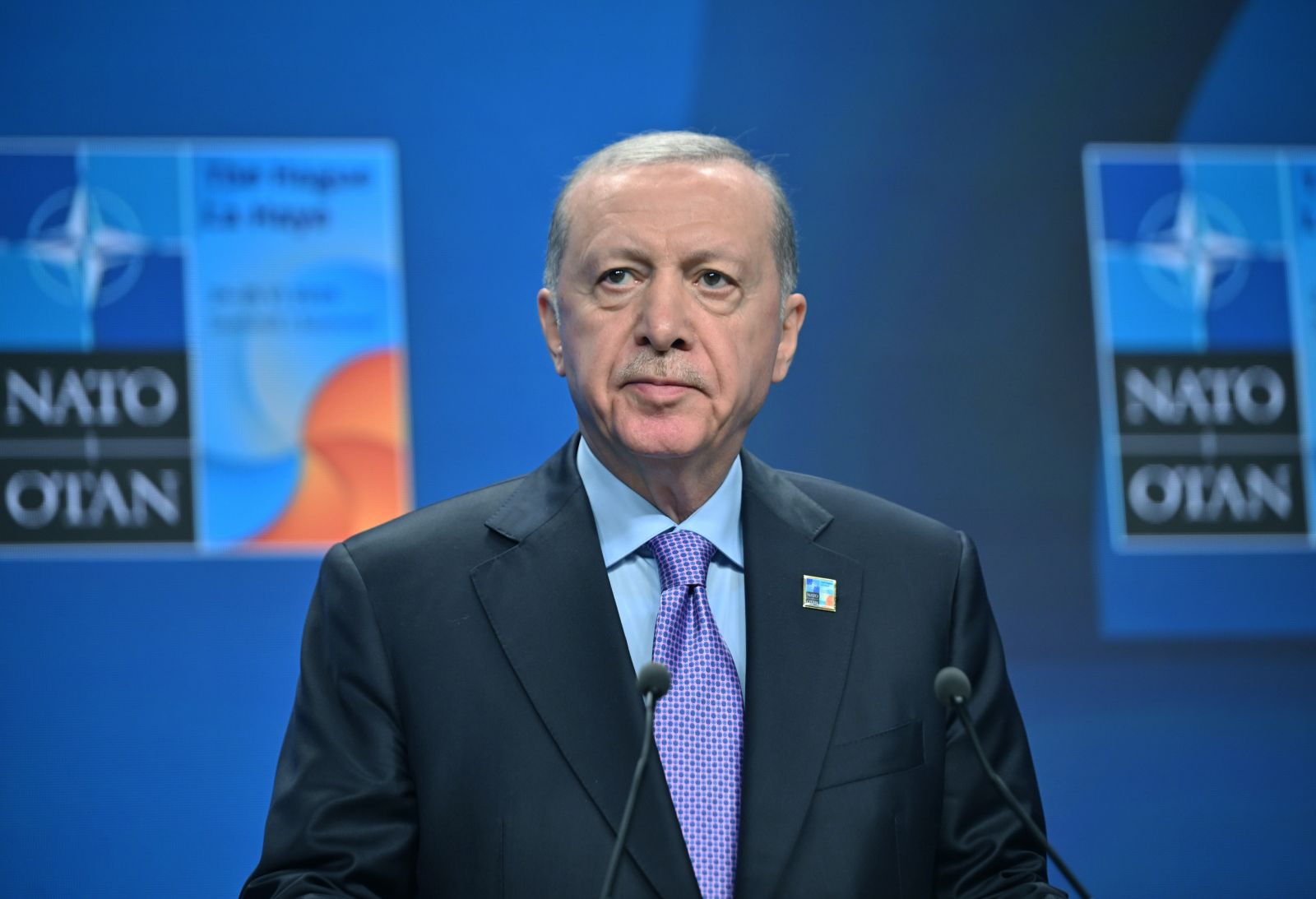
President ERDOĞAN’s Press Conference
Speaking at the press conference following the North Atlantic Council meeting attended by the 32 NATO Heads of State and Government, President Recep Tayyip ERDOĞAN emphasized that their goal was to lay the groundwork for a path to lasting peace. During the Summit, he was accompanied by Foreign Minister Hakan FİDAN, Defence Minister Yaşar GÜLER, National Intelligence Organization Director İbrahim KALIN, Turkish Presidency's Head of Communications Fahrettin ALTUN, Secretary of Turkish Defence Industries Haluk GÖRGÜN, and Chief Advisor to the President on Foreign Policy and Security Akif Çağatay KILIÇ, who followed the press conference from the audience seats alongside journalists.
Declaring the Summit concluded, President ERDOĞAN expressed gratitude to King Willem-Alexander of the Netherlands, Dutch Prime Minister Dick SCHOOF, and the Dutch authorities for their hospitality and hosting. Congratulating NATO Secretary General Mark RUTTE for his successful leadership, President ERDOĞAN stated, “As closely followed by the public, the standout outcome of our Hague Summit was the increase in defence spending by Allies. During the Council session, we decided to raise our defence expenditures to 5% of our Gross Domestic Product over a 10-year period.” Noting that this decision was a necessity for NATO in an environment where existing crises are deepening and new crises are emerging daily, President ERDOĞAN continued: “We are the Ally most affected by the threat of terrorism and directly impacted by many crises in our region. Almost all events currently dominating the international agenda are occurring in Türkiye’s immediate vicinity. We strive to keep our country distant from these crises, conflicts, and tensions. We place great importance on enhancing our deterrence and strengthening our defence. The significant strides made by the Turkish defence industry in recent years are globally recognized. We are a global leader in various fields, particularly in armed and unarmed Unmanned Aerial Vehicles (UAVs). Our defence spending is already above the 2% target set at previous summits. In fact, with our current infrastructure, defence industry investments, resources allocated to innovation, and international efforts, we are among the countries closest to reaching the 5% target. I believe it is appropriate that many Allies are aligning with us in taking on greater responsibility in the face of threats and challenges. Of course, merely increasing defence spending is not enough to enhance the Alliance’s effectiveness. It is also essential to establish mutual understanding and cooperation among Allies with sincerity.”
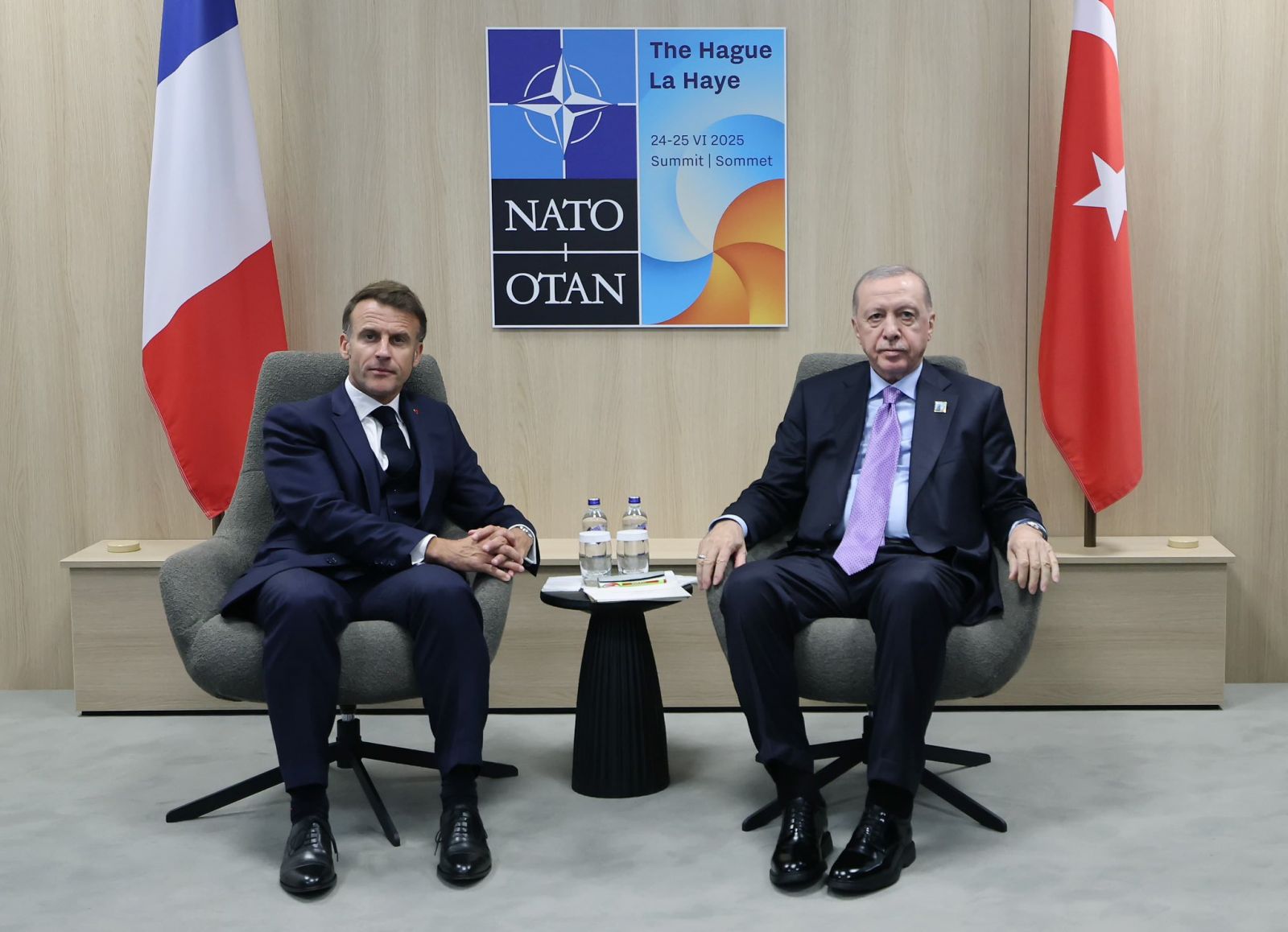
Highlighting that the European Union’s defence and security initiatives should complement NATO, President ERDOĞAN stated, “I emphasized that the full inclusion of non-member Allies in the Union’s (EU) defence industry initiatives would benefit all of Europe. Ultimately, increased defence capabilities in Europe serve the interests of the entire Euro-Atlantic region. Our hope is that this inclusive approach will prevail across the continent.” He noted that he held meetings with numerous leaders during the Summit, including U.S. President Donald TRUMP, German Chancellor Friedrich MERZ, UK Prime Minister Keir STARMER, French President Emmanuel MACRON, Dutch Prime Minister Dick SCHOOF, and Romanian President Nicuşor DAN, among others. In these discussions, they addressed ways to strengthen bilateral relations with Allies and the topics on the Summit agenda. President ERDOĞAN also mentioned that Türkiye’s proposal to host the NATO Summit next year had been finalized, expressing great satisfaction at the prospect of welcoming Allies to Türkiye in 2026.
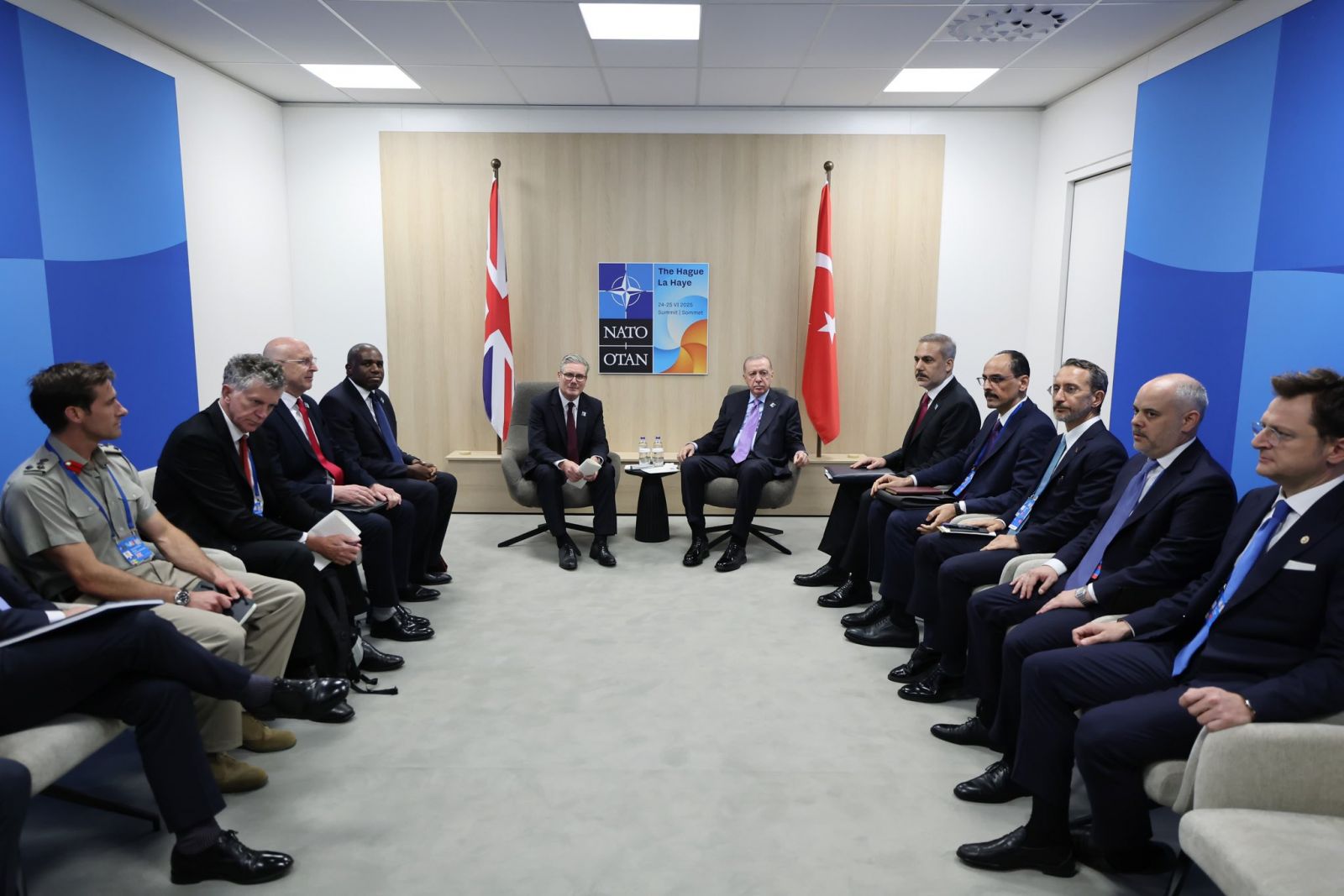
In response to a journalist’s question, “If a conflict breaks out between Türkiye and Israel, would NATO come to Türkiye’s defence?” President ERDOĞAN replied: “As long as there is no attack on Türkiye, such a scenario is not currently in question. Türkiye is a country of peace in its region and is making every effort to ensure peace prevails in its region. However, alongside all this, we will continue to stand against Israel’s intolerable and unbearable attitude. We have stood against oppressors in the region, as we have in Gaza, and we continue to stand against oppression. We continue to stand by the poor and the downtrodden. Consider this: for months, humanitarian aid has not reached the oppressed in Gaza. What will happen to these people if humanitarian aid cannot reach them? We are calling on powerful countries to take a stand against Israel. To ensure that humanitarian aid can be delivered to Gaza, the gates must be opened. This must be facilitated. Right now, Israel is not even allowing the Red Cross to operate. Humanitarian aid, including food, medicine, clothing, and other essentials, cannot reach the people of Gaza even through the Red Cross. This is the situation. If the Red Cross could operate, it would be possible to deliver such aid—food, medicine, clothing—through that channel. But unfortunately, even this is not happening at the moment.”
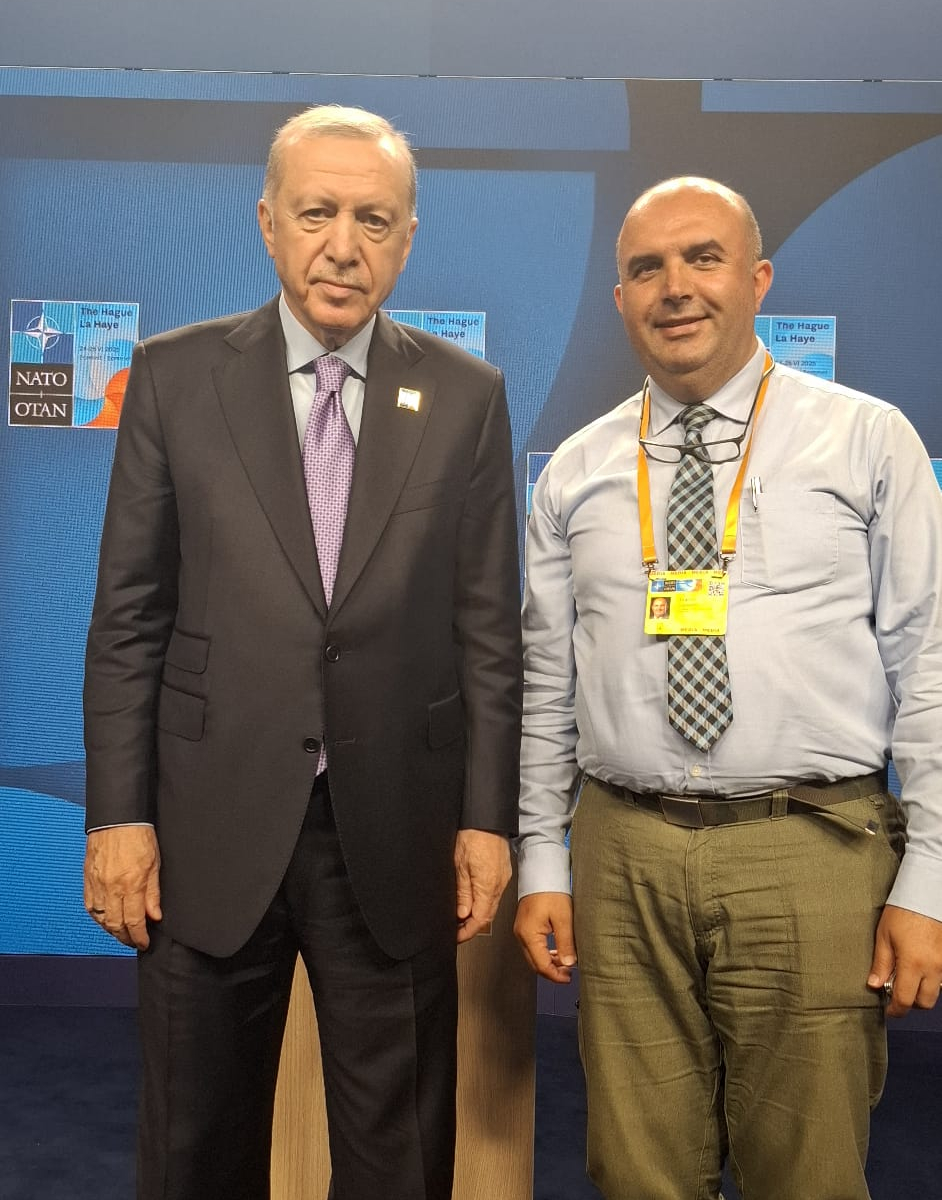
In response to a question from Defence Turkey magazine, “What path will Türkiye follow to increase its defence spending from 2% to 5% of GDP? Did the issue of Eurofighter procurement come up in your discussions with Germany?” President ERDOĞAN said, “As of now, over the next 10 years, the steps we take will naturally be funded from the national budget. By gradually allocating the necessary share from the national budget, we will fulfill our commitment to NATO. Regarding the Eurofighter, we have held and continue to hold discussions with both the UK and Germany, and there are positive developments on this matter. Once these positive developments are fully realized, we will take the necessary steps.”
Following the NATO Heads of State and Government Summit and bilateral meetings in The Hague, President ERDOĞAN departed for Türkiye from Amsterdam, the capital of the Netherlands. At Amsterdam Schiphol Airport, ERDOĞAN was seen off by Dutch authorities, as well as Türkiye’s Permanent Representative to NATO, Başat ÖZTÜRK, and Ambassador to The Hague, Selçuk ÜNAL.